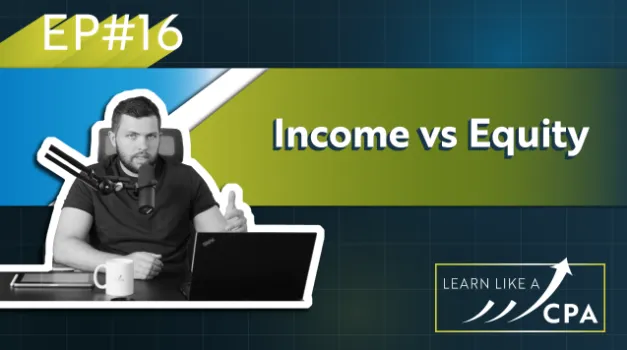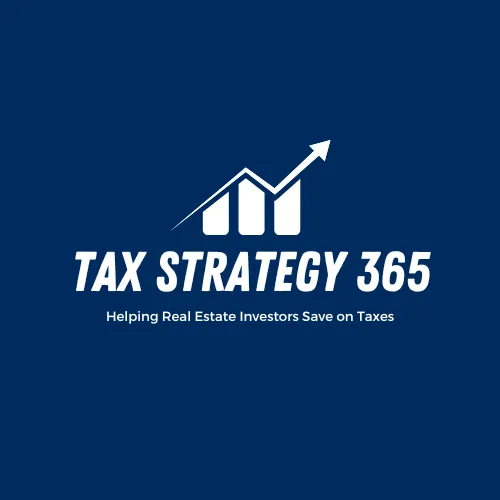Latest blogs and articles
Leading you to a better financial future.

Cracking the Code: Income vs Equity
Cracking the Code: Income vs Equity
Taxation, especially for the extremely wealthy, has stirred controversy, with discussions around individuals like Bill Gates, Jeff Bezos, and Elon Musk, who see significant increases in wealth without corresponding jumps in taxes.
The key lies in understanding the difference between earned (like W2 and 1099 income) and equity (like stocks) income. Earned income is taxed as you earn it, while equity income isn't taxed until you sell the asset and convert it to income. The wealthiest often rely more on equity income, which is taxed at lower rates compared to earned income.
Income tax rates for earned income can go up to 37%, while capital gains tax, applied when selling assets like stocks or real estate, can be as low as 0% or as high as 20%. This discrepancy in tax rates incentivizes holding onto assets like stocks, where gains aren't taxed until realized.
So, while the extremely wealthy may not pay less tax overall, they often pay a lower effective tax rate by strategically utilizing equity income over earned income.
Income Tax
As mentioned earlier, your tax rate depends on your tax bracket, which is a function of how much you make in a year. Your income tax is also affected by your marital status, the job you do, and the type of transactions your make.
The United States has a tax system that is quite progressive because the more income you make, the more you are taxed.

Capital gains tax
You can sell capital assets such as bonds, real estate, and stocks at higher prices than you bought them and make a profit. The profit you make is called a capital gain.
The capital gain can be divided into either:
● Long-term capital gain
● Short-term capital gain
The main difference between these two here is the length of time the seller owned or held an asset before selling. If the asset was held for less than a year, it is a short-term capital, and you will be taxed at the ordinary income tax rate. However, if the asset was held for way more than a year, the rates are the standard 0%, 15%, or 20%.
Note that the short-term capital gain tax will be subject to the same progressive tax rate tier in income tax. This means that if the short-term capital gain is $10,000, the tax will be 12%, but if it is $50,000, the tax will be 22%.
Case Study
Imagine two people, Person A and Person B. They both chose to buy real estate, but Person A chose the fixing and flipping strategy while person B buys and holds.
The property's purchase price is $150,000, the rehabilitation of the building costs $50,000, and the fair market value of the property is $300,000. The person fixing can do all of these in a year. Say he sells the property at the end of the year for a $100,000 gain, he still has to pay ordinary income taxes plus self-employment taxes, which could reach up to $40,000.
Person B, who is buying and holding, finds a tenant to rent the property. Then they go to the bank and refinance for up to 80% of the fair market value. This will allow them to pay off their old loan and still receive a check at closing without incurring any tax.
When Person B finally sells the property, they'll pay taxes at favorable long-term capital gains rates of either 0%, 15%, or 20% instead of 40%, as in the first case of Person A.
As you can see, both individuals had their wealth increase. However, Person B didn’t immediately cause a taxable event like Person A did. Thus, with this, you can conceptualize the mindset of wealthy people and understand why they choose to go with equity over income.
Other examples of non-taxable events:
● Welfare payments
● Selling a property that you live in 2-5 years
● Payments of child support
● Refinance loans
● Cash rebates
● Inheritances (apart from traditional IRA/401k proceeds)
● Gift from a family member
● Child Support
● 1031 exchange from rental real estate properties
It is pretty clear that equity is taxed more favorably than income. So, whenever you have the opportunity, always choose equity over income. It’s a way to build wealth without paying so much in taxes.
Cracking the Code: Income vs Equity
Join my Facebook group with over 9,000 real estate investors!

Choose Your Journey to Tax Excellence
Journey 1
Building a Tax Advisory & Consulting Practice
Scale, streamline, and systemize your advisory business.
Turn compliance clients into year-round advisory opportunities while mastering operational efficiencies for sustainable growth. This track covers pricing, hiring, marketing, and client engagement essentials to help you build a practice you love.
WHAT YOU’LL LEARN:
Crafting solid engagement letters and pricing models.
Transforming compliance clients into year-round
partners.
Marketing
strategies that drive consistent growth.
Recruiting and training the right team to scale your business.
Bonus:A Power Checklist for the ultimate year-end tax planning session.
Journey 2
Tax and Legal Foundations: Core Strategies for All Levels
Master the fundamentals that drive financial success.
Perfect for business owners and advisors, this track delivers essential insights on asset protection, tax planning, estate strategies, and IRS compliance.
WHAT YOU’LL LEARN:
Unlock estate planning with Revocable Living Trusts.
Maximize retirement savings through Solo 401(k) plans.
Real estate strategies: Short-term, long-term, and self-rentals.
Learn asset protection that actually works.
Navigate IRS resolution with confidence and ease.
Journey 3
Advanced Insights: Unlock Complex Tax Strategies
Top-tier strategies for high-value clients.
Designed for experienced professionals, this track offers in-depth guidance on prime tax strategies, entity structuring, and payroll solutions. Gain the insights needed to handle complex business scenarios with confidence.
WHAT YOU’LL LEARN:
Report multi-entity structures with Forms 1065 & 1120S.
Maximize tax savings using Bonus Depreciation & Section 179.
Seamlessly relocate clients to tax-free states.
Navigate business sales and acquisitions smoothly.
Use 105 Plans to save clients on healthcare costs.

2024 Learn Like A CPA. All rights reserved.